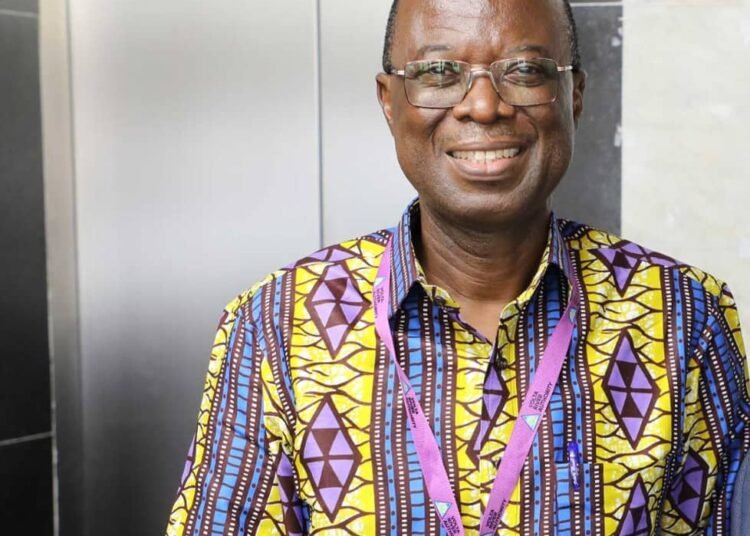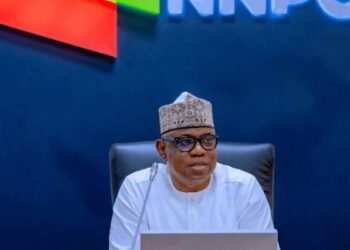When patriotism is mentioned, it is easy to immediately think of soldiers or law enforcements agents who are ready to sacrifice themselves for their country, but one doesn’t need to go that far to be labelled a patriot. Over the years, Ghana has seen numerous patriots give their all to better the country. One especially outstanding patriot is the chief executive of the Volta River Authority, Emmanuel Antwi-Darkwa.
A civil engineer by trade, Mr Antwi-Darkwa deserves every bit of recognition that comes his way, by dint of his hardworking, resolute and persevering nature. However, every success story has a beginning, and Mr Antwi-Darkwa’s is one for Ghana’s history books.
Mr Antwi-Darkwa’s educational background features some very prominent universities, all of which helped grant him the best tutorship on civil engineering. His certificates include a Bachelor of Science (Hons) Civil Engineering from the Kwame Nkrumah University of Science and Technology, Ghana, a Master of Business Administration (MBA)in International Oil & Gas Management, University of Dundee, UK, and a Master of Public Administration (MPA) from Harvard University, USA.
Mr Antwi-Darkwa is a member of the Ghana Institution of Engineers (GHIE), International Hydropower Association (IHA), Society of Petroleum Engineers (SPE), and the Association of International Petroleum Negotiators (AIPN). His services have also been extended toward the Editorial Advisory Board of Hydro Review Worldwide, an international professional magazine that focuses on hydropower development.
For over 30 years, Mr Antwi-Darkwa has placed his knowledge on civil engineering to good use in the Ghanaian energy field. He first began working with the Volta River Authority (VRA) in 1985, and by 2002, had received an appointment as the Director of Power at the Ministry of Energy. He held that position until 2009, and also later resigned from the VRA in 2012, opting to practice engineering privately.
While in the private field, Mr Antwi-Darkwa assisted in the negotiating of the VALCO project, and the development of the Bui hydroelectric power project, which currently generates 400 megawatts of power, which is enough to power tens of thousands of Ghanaian homes. He was also instrumental in the 110-megawatt expansion to the 220-megawatt Takoradi Thermal Power Plant in 2014, increasing power output to 330 megawatts.
Due to his knowledge in strategic planning, formulating policies, negotiating skills an evaluating power projects, the VRA went looking for Mr Antwi-Darkwa in 2017, leading to his appointment as chief executive of the authority.
Achievements as Chief Executive of the Volta River Authority.
2023 marks the sixth year since Mr Antwi-Darkwa assumed position as the chief executive of the Volta River Authority, and under his leadership, the VRA has done its utmost to achieve its goal of supplying electricity and other related services in the country, in a reliable, safe and environmentally friendly manner.
However, his tenor as leader did not begin on a rosy note. The VRA reported in its newsletter for October to December 2017 that it suffered a number of challenges that year, the most notable being a weak financial front brought about by an uncertain regulation framework and competition in the export market.
Mr Antwi-Darkwa wasted no time in drafting a budget and a policy to overcome obstacles, reduce VRA’s dependence on the government, and also beat the competition and increase export revenue. All these would benefit the VRA, and Ghana financially.
To ramp up revenue, the VRA stopped importing power from Cote d’Ivoire, and rather began exporting power to that country. It was all a part of Mr Antwi-Darkwa’s plan to drag the VRA from its financial quagmire.
“That is how we want to run the business; cut our cost, explore export opportunities and increase our revenue. To do this, we will reprioritize our expenditure so that we can gather more resources to support our thermal plants; because if we do not operate, we do not sell and if we do not sell, we do not get revenue.” He stated at a staff meeting.
In 2018, the VRA reported making gains due to the management’s decision to stick to cheaper and cleaner natural gas when running the thermal plants. Cheaper operations of thermal plants equate an overall cheaper cost of electricity for the Ghanaian public.
Under Mr Antwi-Darkwa’s leadership, The VRA’s hydropower plants were dominantly present in Ghana’s electric power generation in 2018. Generation from our hydro sources increased from 5,034-gigawatt hours in 2017 to 5,044-gigawatt hours in 2018, contributing 37% to national power generation. Of the 15,964-gigawatt hours generated nationwide, the Authority generated 9,635-gigawatt hours, which made up 60.4% of total energy generated.
The VRA was also able to reduce its net losses by a combined percentage of 83% for 2017 and 2018, thus helping the authority increase its overall profits.
Not a man to be miserly with his knowledge of how to best operate in the energy sector, Mr Antwi-Darkwa made time to attend the 2019 Energy Personalities Outreach Programme at the West Africa Senior High School (WASS) in Madina, Accra, to share his knowledge and experiences with the students after being named among the Energy Personalities for 2018.
In 2020, the VRA helped in the fight against COVID-19 by presenting ₵2 million to the COVID-19 Trust Fund. The organisation has also donated to schools, held workshops on ICT and digital economy, and alongside NADMO, hosted dam spillage simulation exercises in the Akosombo and Kpong Dam areas, to educate residents on what to do in the event of a spillage.
Mr Antwi-Darkwa has shown himself to be a man of the future too, for besides its thermal and hydroelectric power plants, the VRA has also begun working with renewable energy sources, specifically solar and wind energy. These are cleaner than thermal energy, and do not pollute the environment, hence decreasing Ghana’s greenhouse gas footprint.
The VRA is working with two wind energy developers, Vestas and El Sewedy, to develop 150 megawatts of wind power at four identified sites in Ghana’s southern regions based on wind resource potential; namely: Anloga, Anyanui, Lekpogunu and Akplabany.
Such new sources of energy will aim to reduce the country’s dependence on thermal energy, and in time, provide cheaper energy prices.
Conclusion
While Ghana still has ground to cover regarding sufficient energy production, the recent exploits of the VRA show that under the leadership of Mr Antwi-Darkwa, the organization is on the right track.
By: Derrick Kafui Deti/Public Sector Global Magazine






























































